Headline:
Symposium "Friends of the Open Society"
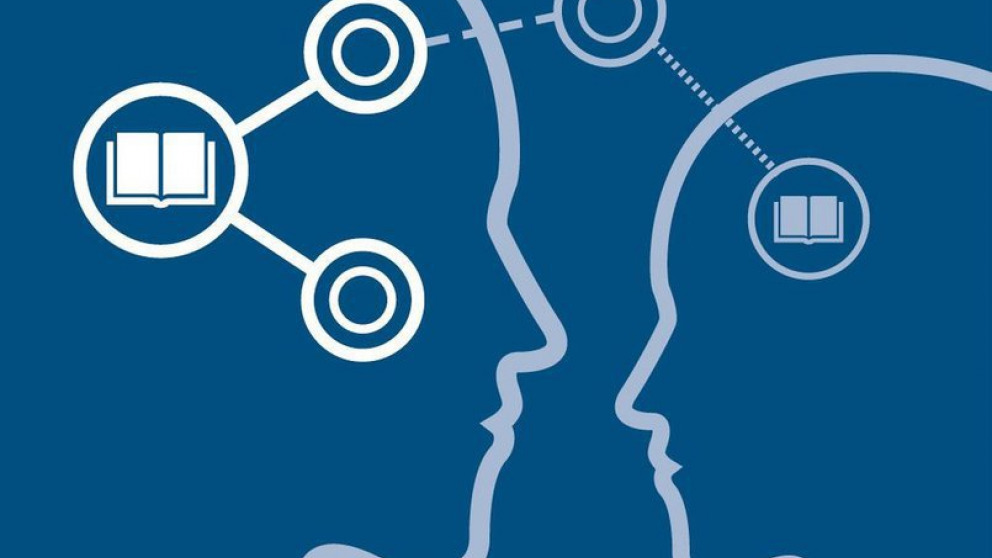
Documentation
Sustainability and democracy are intertwined: the open society provides an enabling environment in which a good life for all can be secured with the aid of knowledge and technological innovations. With the world population projected to reach 9 billion in the coming decades, sustainability is more important than ever if this vision is to achieved. The insight that sustainable development can only be achieved in an open society, together with the uncertainty generated by the current crises of democracy and sustainability around the globe, should be viewed as an impulse with the potential to spur efforts to foster sustainable development.
Held in Berlin in November 2018, the Friends of the Open Society Symposium brought together 250 guests to discuss the most pressing issues at the intersection of democracy, sustainability, and digitalisation with representatives from the political sphere and civil society. The event was hosted and organised by the Federal Ministry of Education and Research (BMBF) in cooperation with the Institute for Advanced Sustainability Studies.
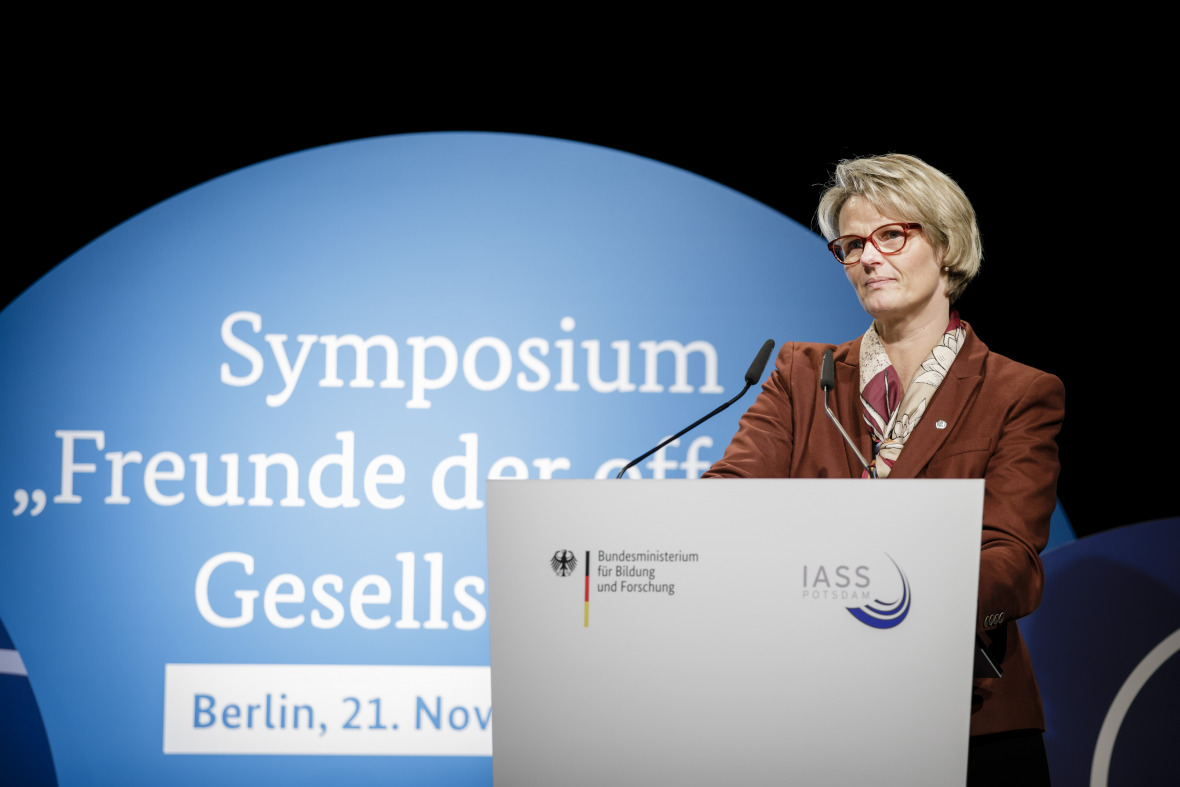
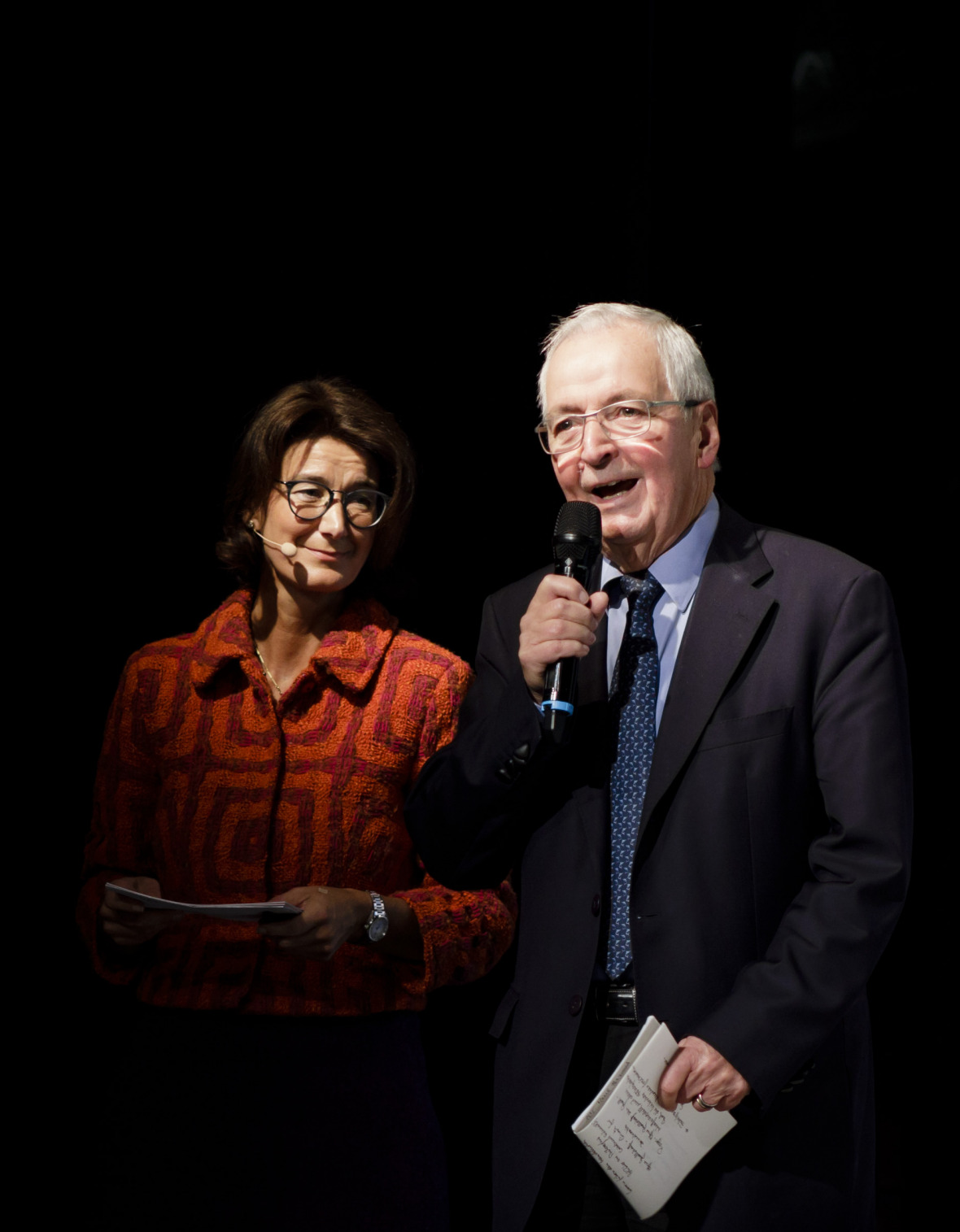
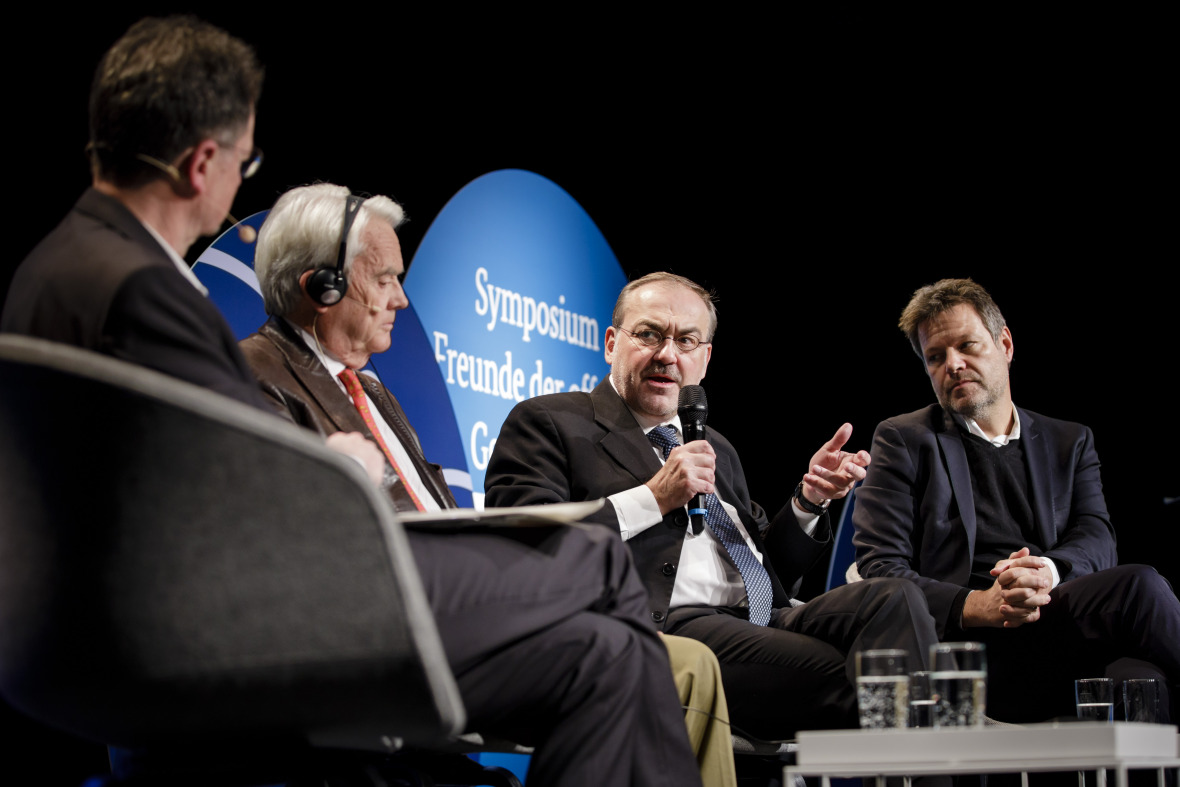
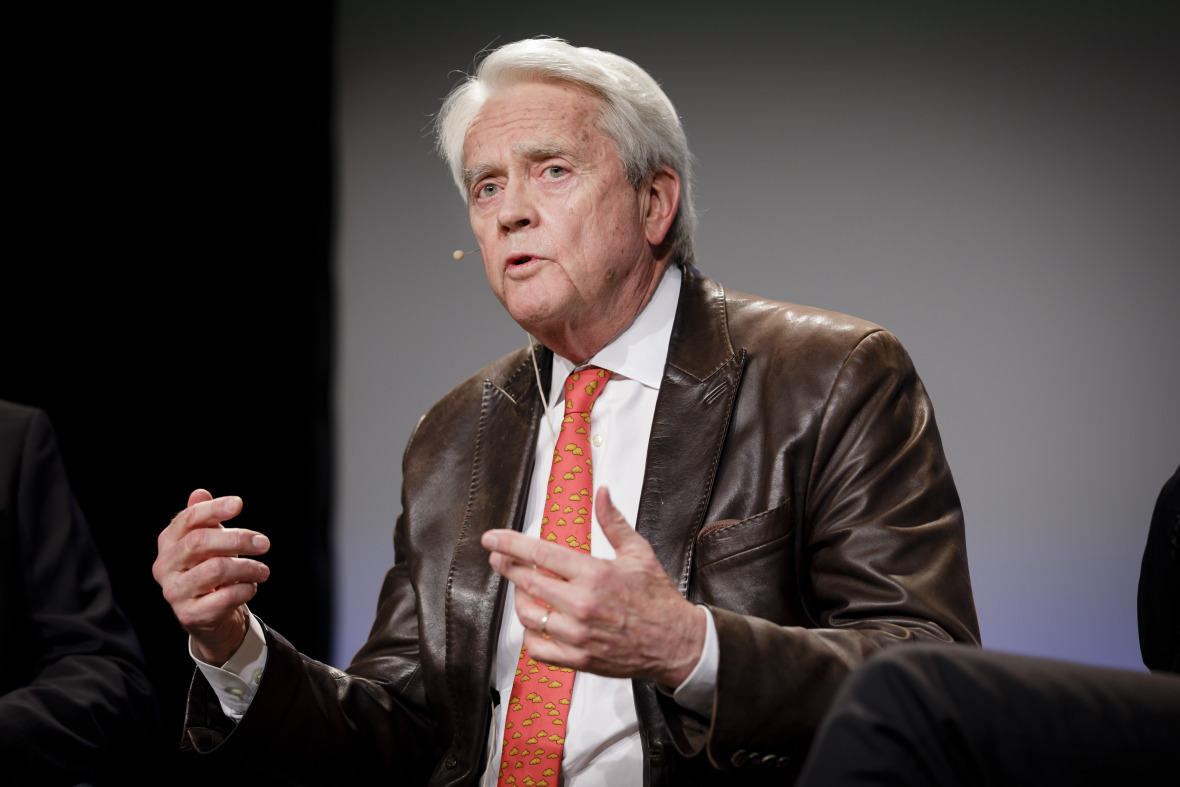
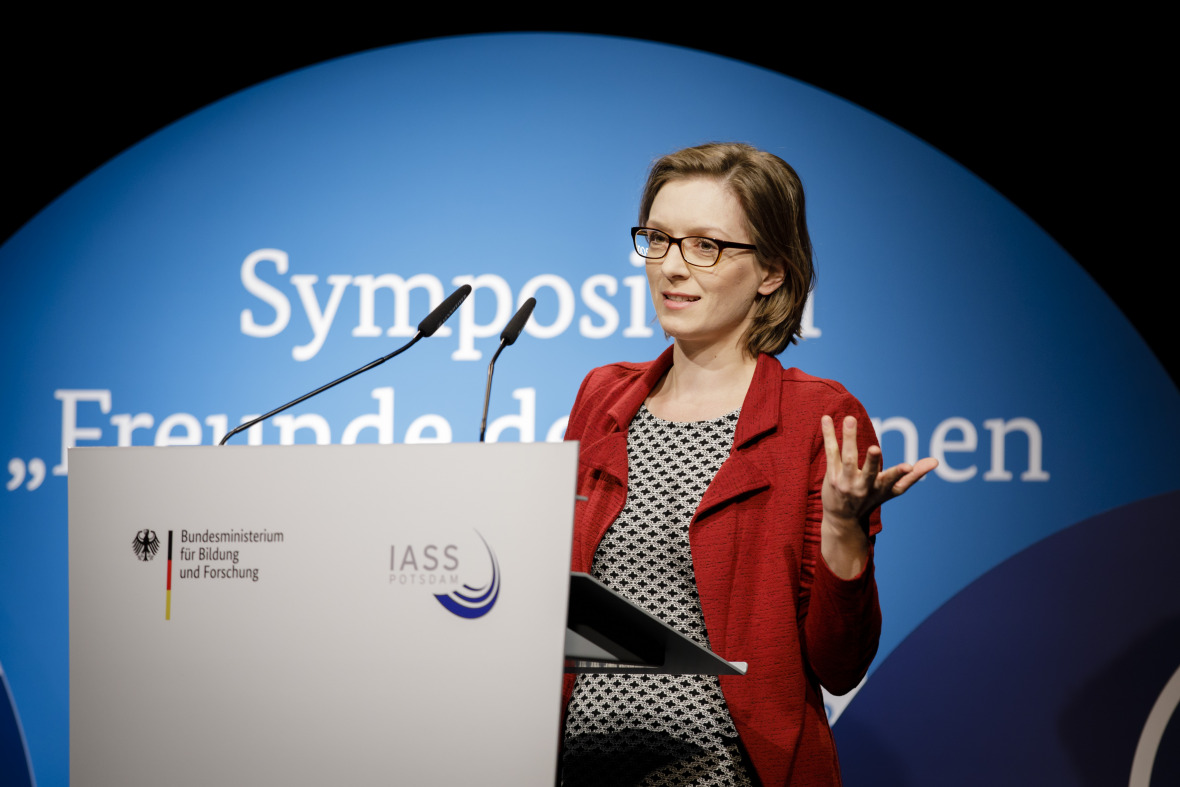
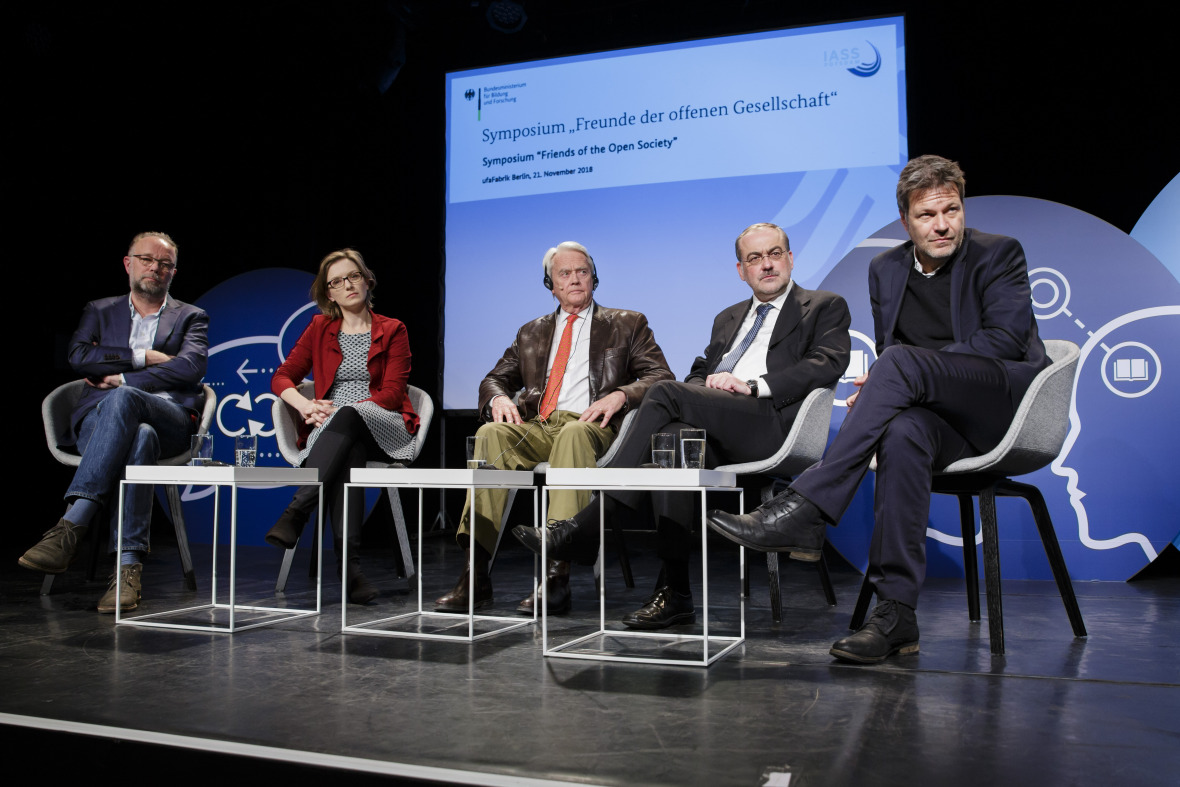
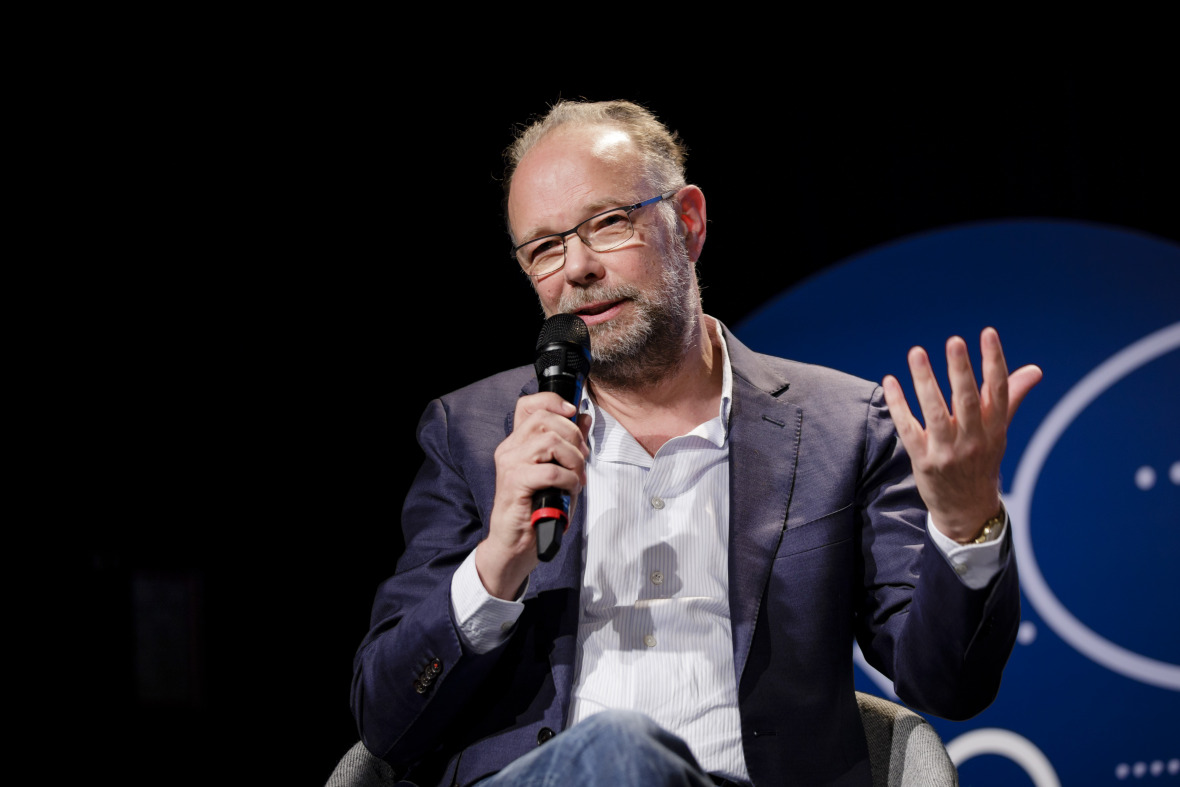
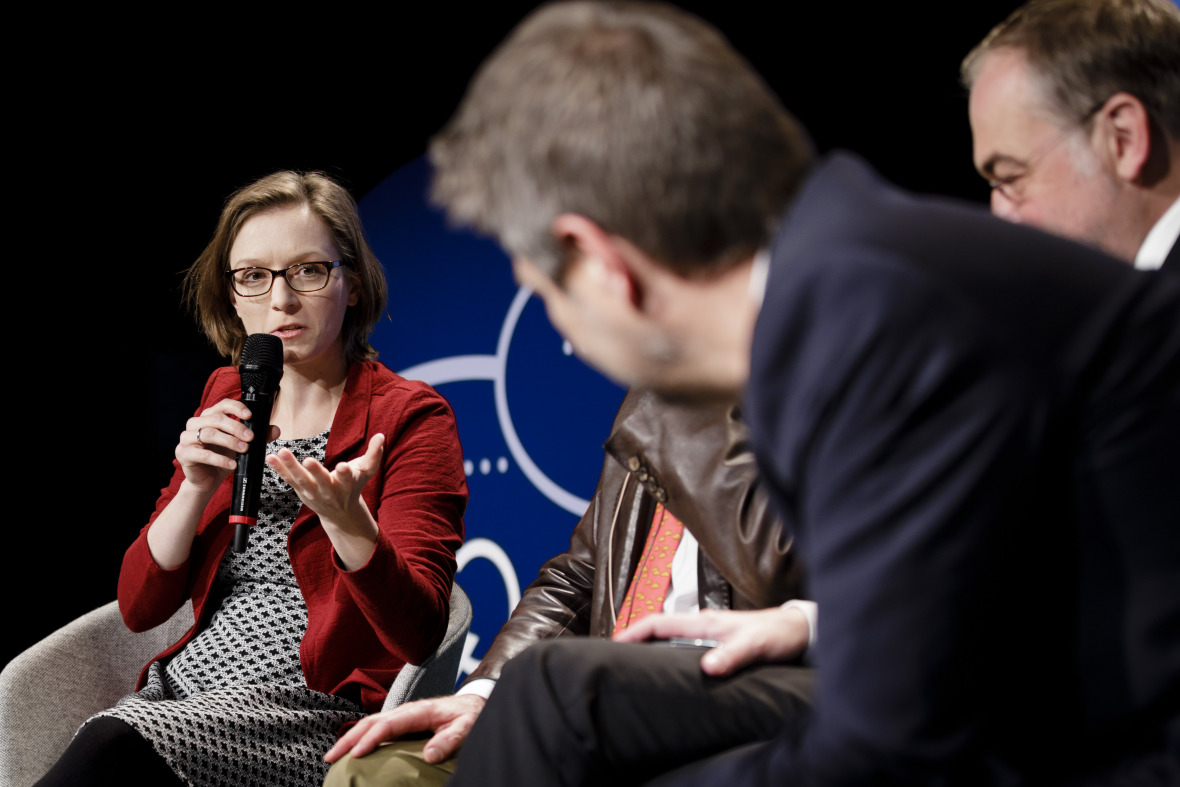
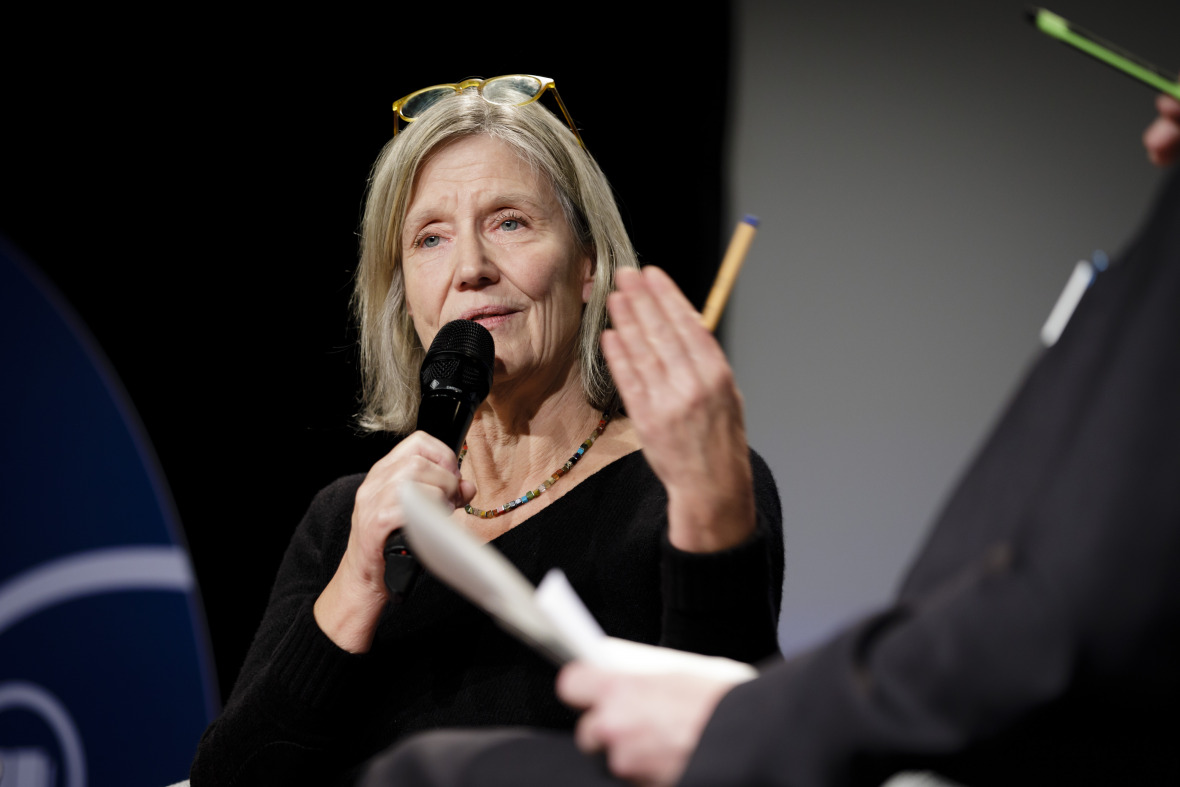
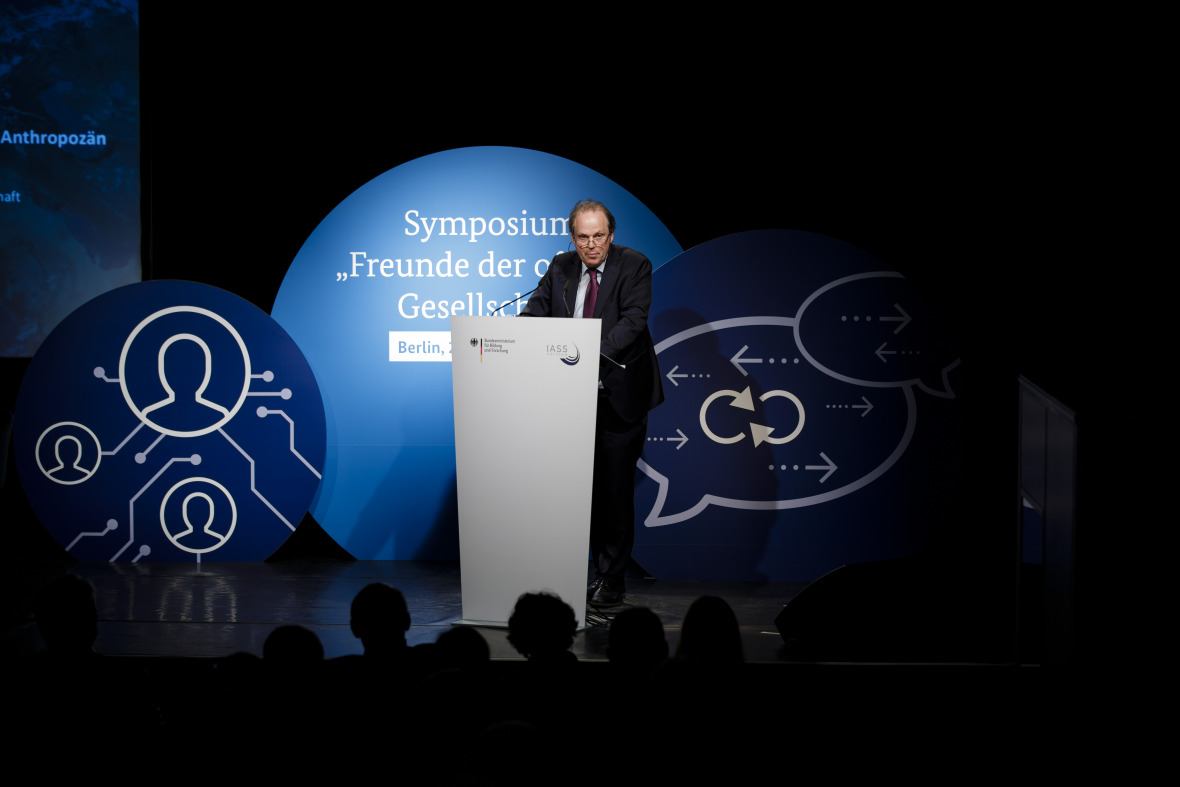
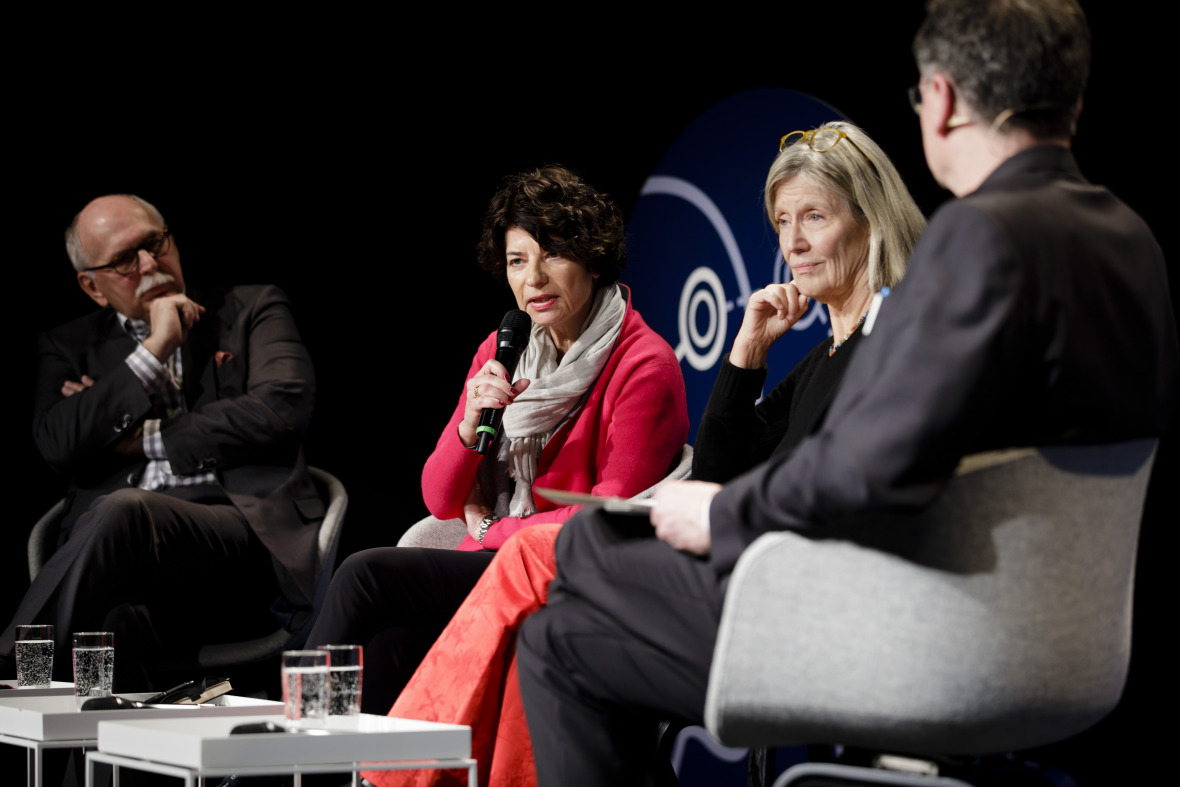
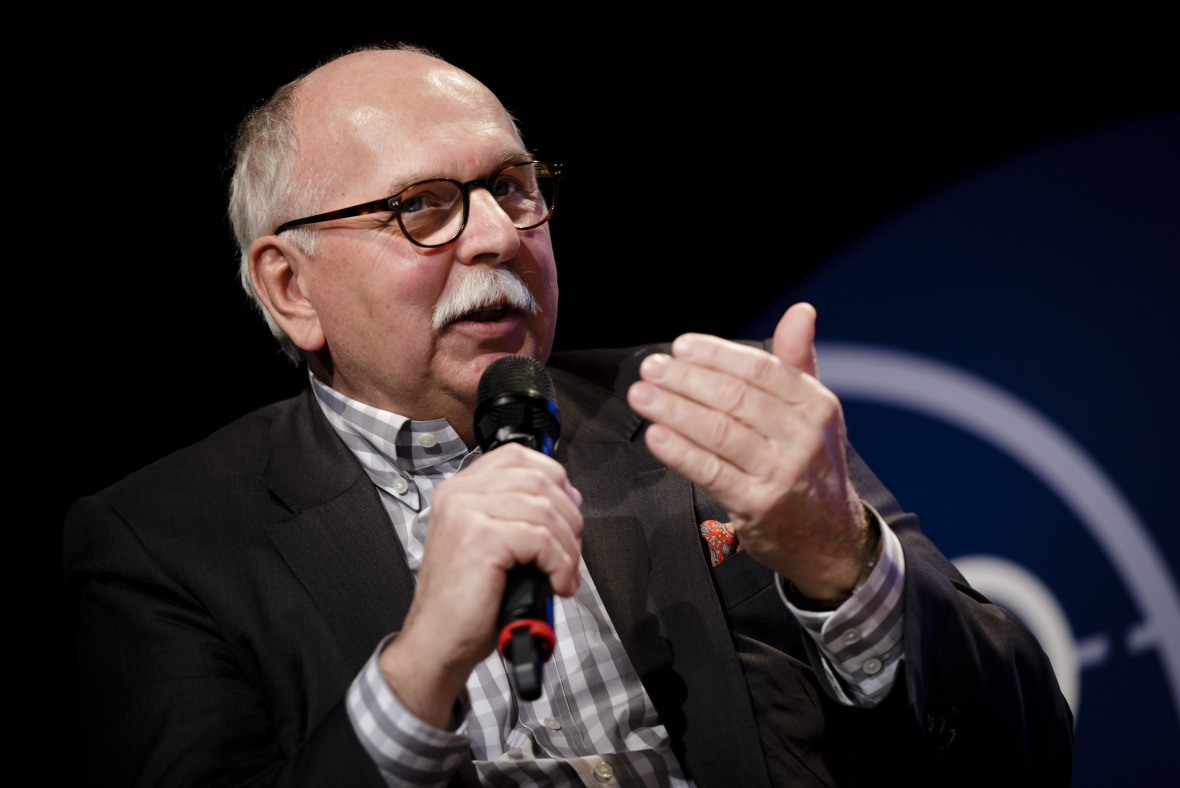
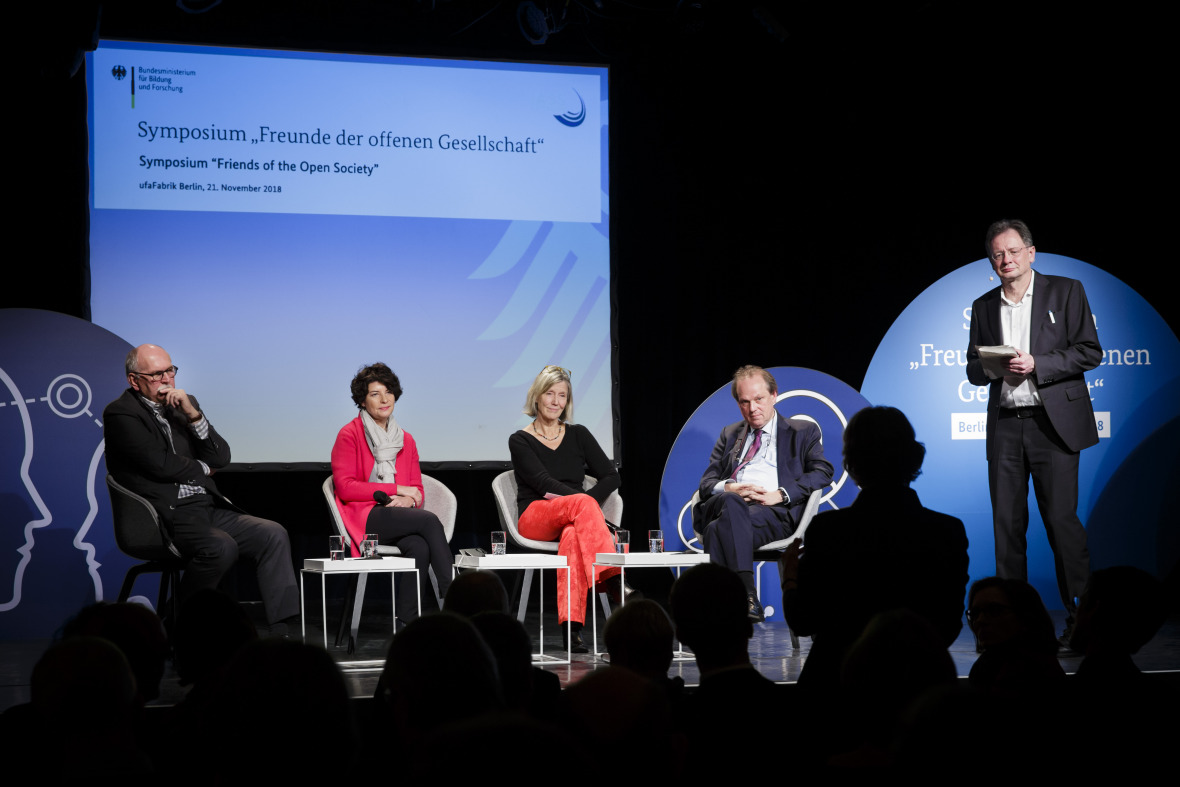
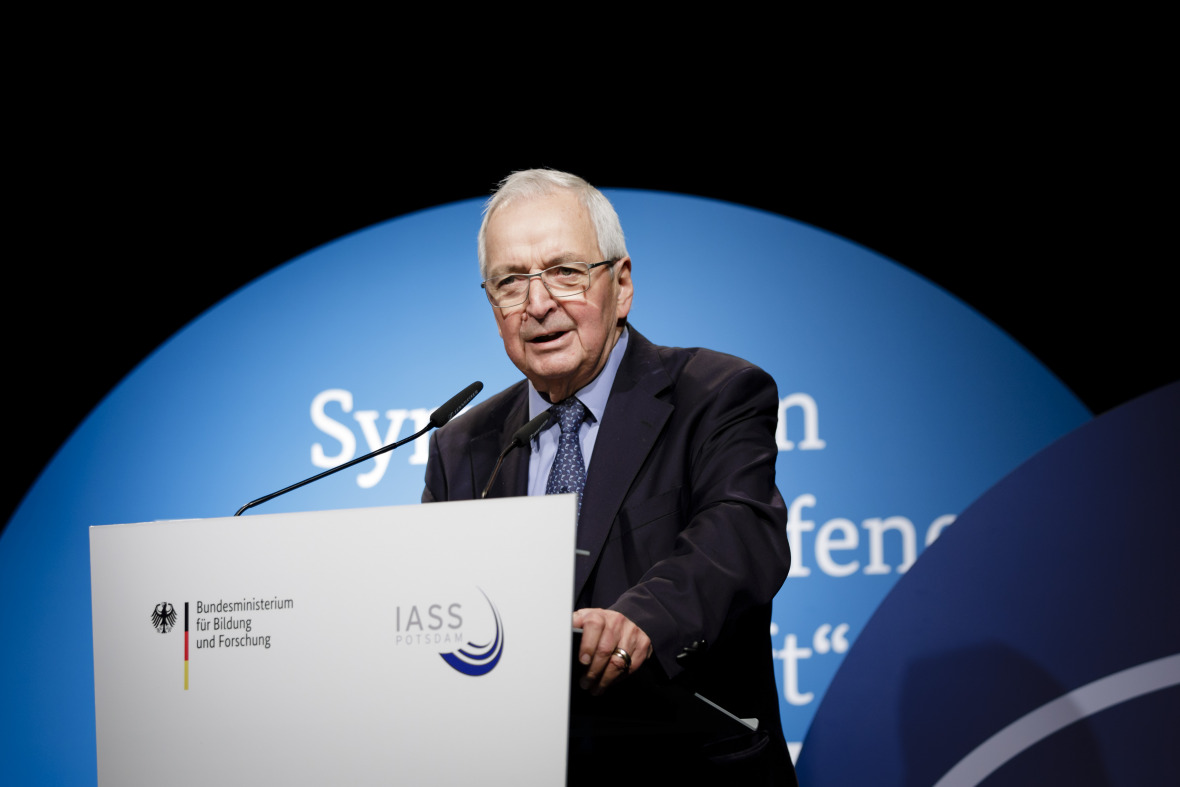
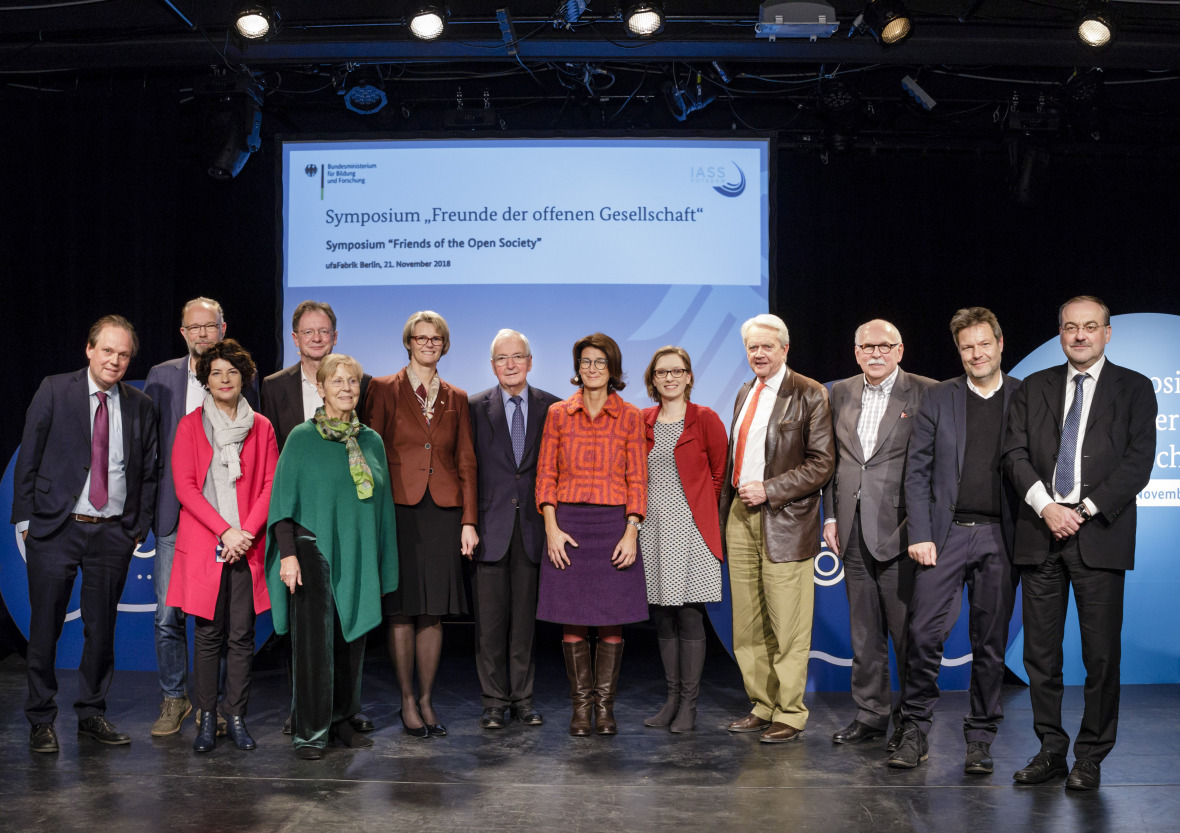
Opening the symposium, Patrizia Nanz (IASS) and Alexander Müller (TMG Thinktank for Sustainability) outlined the challenges currently facing the open society. Both emphasised the need for research that will promote the common good and advance efforts to generate knowledge that is relevant to society and will meet with acceptance.
Federal Minister Anja Karliczek welcomed the guests to the symposium andhighlighted the complex relationship between democracy and sustainability in the age of climate change. Bidging the divide between the insights of science and political action was more important than ever, she argued. Klaus Töpfer was an exemplary figure in this respect, she noted, and had shaped the production of knowledge at the interface of policymaking, science and society over decades.
9 Standpunkte zu Demokratie, Nachhaltigkeit & Digitalisierung
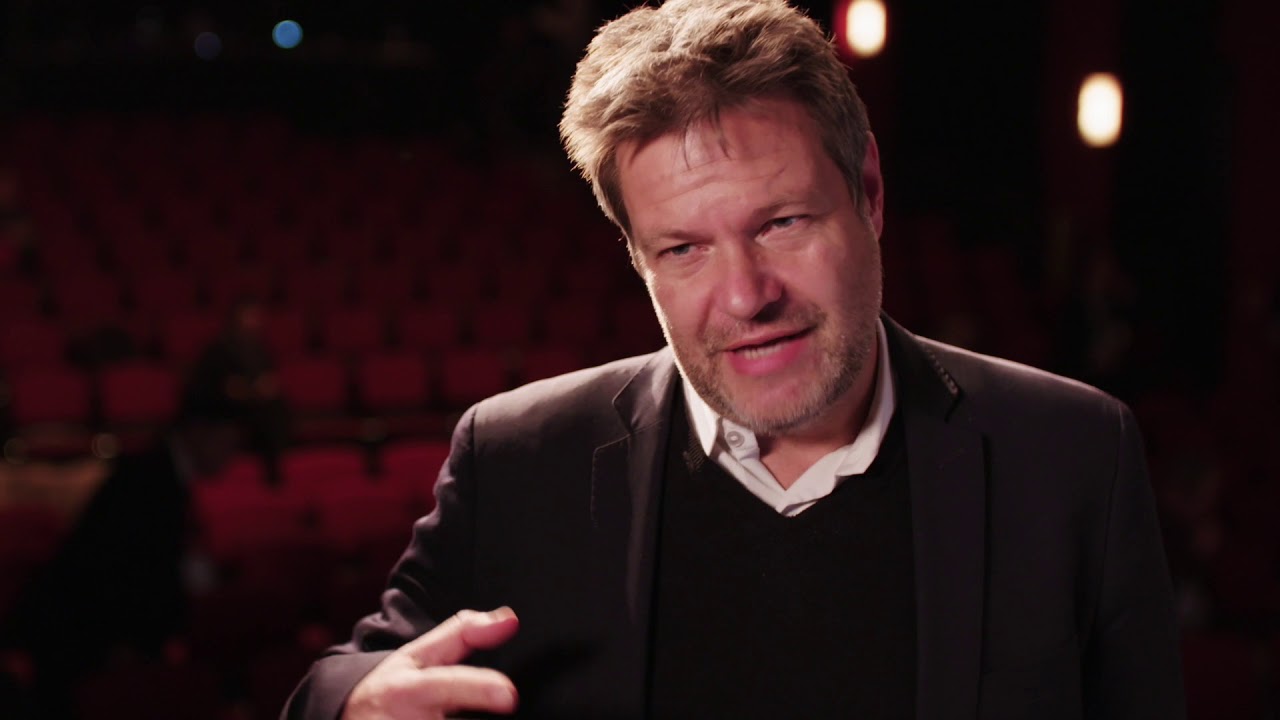
Rethinking the relationship between democracy, transformation, and knowledge
The first part of the symposium focused on recent challenges to the hard-won societal consensus on rationality, the rule of law and scientific progress. Thomas Bauer (University of Münster), Robert Habeck (Alliance 90/The Greens), Lisa Herzog (Bavarian School of Public Policy), William K. Reilly (formerly US Environmental Protection Agency EPA), and Bernd Ulrich (Die Zeit) discussed what steps science and policymakers could take to defend this shared value system. Recognising and addressing the current crises would create a space in which solutions to social issues could be developed.
Technological innovations – Opportunities and risks for sustainable development in an open society
Technological innovation can serve the open society and foster a sustainable future. A panel discussion with Christiane Grefe (Die Zeit), Petra Grimm (Institute for Digital Ethics, Hochschule der Medien Stuttgart), Matthias Kleiner (Leibniz Association) and Jürgen Renn (Max Planck Institute for the History of Science) debated the aims of technological innovations and the opportunities and risks they present. The discussion highlighted different approaches to placing technological innovation in the service of societal goals and their integration within our cultural value system. There was a consensus that science and policymakers must adopt a common position and develop processes to foster dialogue between various disciplines within the science system and technology policy.
Acting today, thinking for tomorrow
Klaus Töpfer, whose eightieth birthday was the occasion for the symposium, explored in his speech the tension that exists between the advanced state of societal homogenization and the need for diverse alternatives in an open society. That just three globally-operating companies hold personal data relating to millions of people is symptomatic of this state of affairs.
With reference to the introduction of large-scale technologies, Klaus Töpfer reminded his audience that humans never make decisions with perfect information. Technology policy must therefore consider both the scalability of technology and – as the situation requires – its adaptation or indeed correction. Democracy, Töpfer argued, can be decisively undermined when technologies, the business sector or policymakers foster path dependencies or are unable to check their advance. In that event, democratic societies lose their ability to adapt to changing circumstances and to tap into the vast potential that lies in human diversity.
